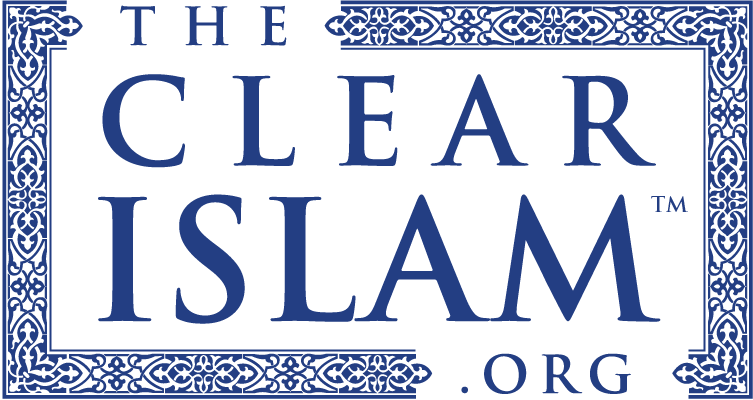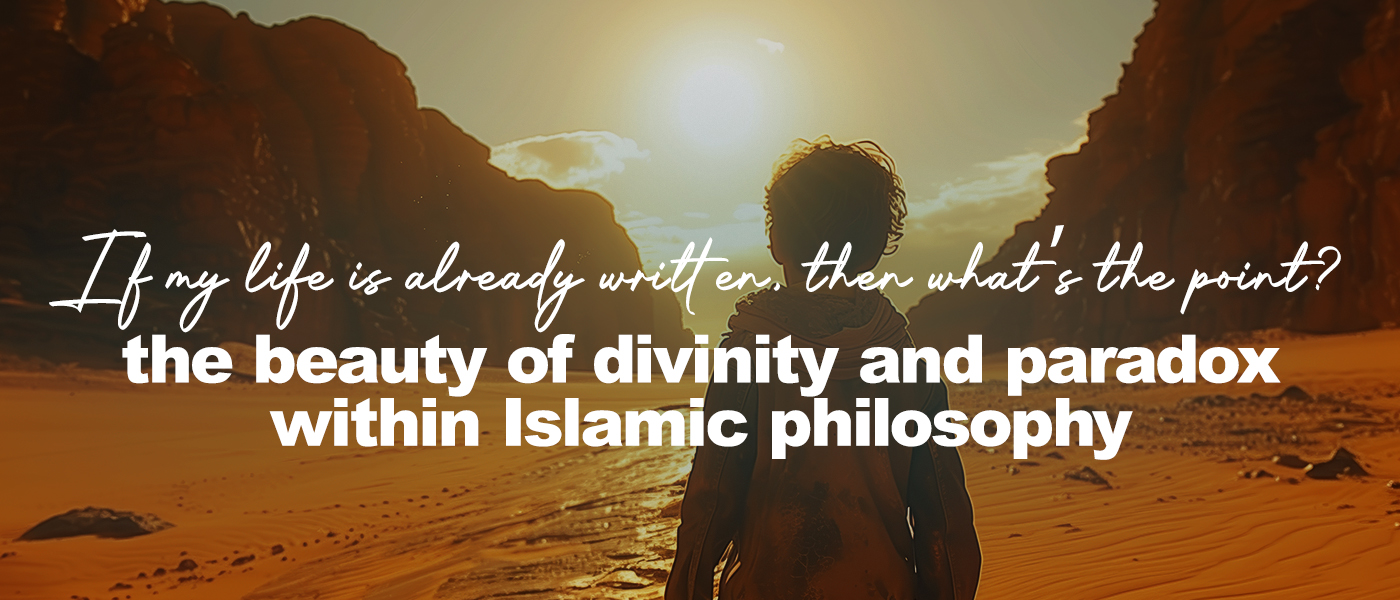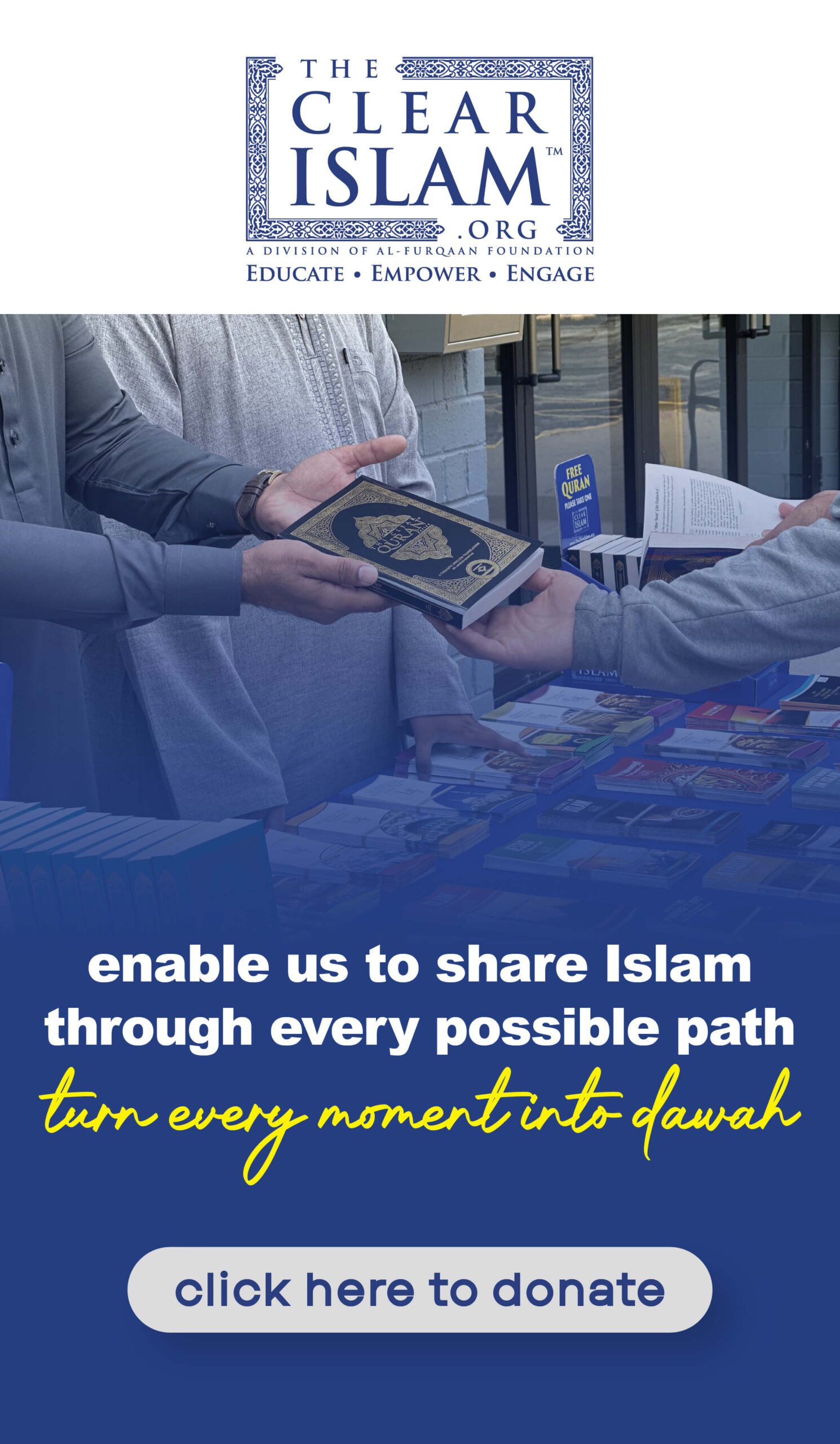The beauty of divinity and paradox within Islamic philosophy
The paradox between free will and divine knowledge is one of the most challenging and enduring questions in Islamic theology, also known as ‘ilm al-kalaam, engaging scholars from the earliest generations of Islam to the modern day. How can human beings possess moral responsibility if all is foreknown by an all-knowing God? This article will explore the tension between divine omniscience, ‘ilm Allah, and human volition, ikhtiyaar, examining Quranic foundations, hadith literature, classical theological responses, and the spiritual implications of living within this paradox. In doing so, it aims to clarify misconceptions and offer an intellectually honest yet spiritually nourishing perspective rooted in the Islamic worldview.
For every thinking Muslim, young or old, scholar or layperson, there comes a time when a deeply unsettling question emerges. If Allah (SWT) already knows what I’m going to do, then do I really have a choice? And if everything has already been decreed, then what role do my efforts, intentions, and moral accountability truly play? These questions are neither new, nor are they abnormal to ask or be curious about. They echo from the earliest generations of Islam. In fact, when a man asked the Prophet (SAW) about qadr, his companions became so enraged at the question that the Prophet (SAW) had to calm them down. Yet, the Prophet (SAW) did not dismiss the question, he engaged it. Why? Because Islam never silences sincere inquiry, it disciplines it.
The objective of this article is not to offer simplistic answers, but to faithfully unpack the Islamic tradition’s depth in addressing this profound tension.
Divine knowledge is timeless and total, but never tyrannical
In Islam, Allah’s (SWT) knowledge is not like ours. We know things after they happen. We learn through experience. Allah’s (SWT) knowledge, by contrast, is eternal which means it is without beginning or end. He (SWT) does not wait to see what we will do. He (SWT) already knows. Allah (SWT) says, “Surely Allah knows the unseen of the heavens and earth. And Allah is All-Seeing of what you do.” (The Clear Quran®, 49:18)

Let’s look at this simple analogy to make this concept more clear for us all. A mother knows her child incredibly well and will easily gauge what the child will do, how they will behave, and how they will react to certain circumstances, but that doesn’t mean that she caused the result. The child will make efforts, or fail to, and the results will reflect their actions. Her foreknowledge doesn’t deny their agency. It reflects her insight. Now, imagine that analogy stretched to its absolute perfection. Allah’s (SWT) knowledge is not predictive, it is absolute. He (SWT) knows what we will choose, how we will choose it, and what was in our hearts when we made those decisions, but we are still the ones making them.
Free will for humans is a real concept with limitations
The Quran speaks often about human responsibility. It repeatedly calls us to make choices, to reflect, to act righteously, and to take account of ourselves. Allah (SWT) says, “We already showed them the Way, whether they choose to be grateful or ungrateful.” (The Clear Quran®, 76:3)

Further, He says, “Whoever does good, it is to their own benefit. And whoever does evil, it is to their own loss. Your Lord is never unjust to His creation.” (The Clear Quran®, 41:46)

These verses are not just poetic encouragement. They are theological declarations. The Quran is holding us responsible for our choices, because we do, in fact, choose. But here’s what’s crucial: Islam never claimed that we have absolute freedom. We do not choose when we are born. We do not choose what family we are born into, or what trials we face. We do not control the outcomes of our actions. We are, in fact, limited beings within a broader Divine reality.
Our will is real, but it operates within the will of Allah (SWT). “But you cannot will to do so unless Allah wills. Indeed, Allah is All-Knowing, All-Wise.” (The Clear Quran®, 76:30)

verse is not a negation of our will, it’s a framing of it. We choose, we intend, we act, but all of it unfolds in a universe created, sustained, and known by Allah (SWT). Our freedom is delegated, not absolute. We are free within the limits that Allah (SWT) has set, just as a child is free to walk around a playground, though they remain within the boundaries set by their guardian.
A common response to misunderstandings about qadar
One of the most damaging misunderstandings among Muslims today is the idea that “everything is already written, so why should I try?” This is not Islamic theology, it’s qadar-based fatalism, and it’s a deviation from the path of the Prophet (SAW). Let us reflect on the well-known hadith, “A man asked: ‘O Messenger of Allah, should we not rely on what has been written (i.e., our fate)?’ The Prophet (SAW) replied, ‘No, act, for everyone will find easy that for which they were created.’” (Sahih Bukhari)

The Prophet (SAW) rejected passive fatalism. He taught that qadar is not an excuse to surrender effort, but a reason to work with humility.
It’s important to note that this hadith was given after the Prophet (SAW) explained that Allah (SWT) had written the decree of every person in the womb, including their sustenance, actions, and whether they would end up in Jannah and Jahannam. Yet even in light of this complete knowledge, the Prophet (SAW) insisted, “Act!”
This is the beauty of Islamic theology because it allows for divine foreknowledge and human responsibility to coexist, because it doesn’t treat them as competing truths.
The role of dua and effort
Another misconception is that if everything is already written, then dua is pointless. However, the Prophet (SAW) has taught us the opposite. He says, “Nothing repels the Divine Decree except dua.” (Tirmidhi)

This statement is radical. It means that some aspects of qadar are conditional, they can change through prayer, action, and sincere repentance. This is known in theology as qadar mu’allaq, the contingent decree, as opposed to qadar mubram, the absolute, unchanging decree in Allah’s (SWT) ultimate knowledge.
So when we pray, we are not changing Allah’s (SWT) knowledge, we are fulfilling one of the paths He (SWT) already knew we might take. And perhaps, through our dua, we enter into a better version of our story – one that was always available to us, but required us to reach for it.
Living with this paradox in our everyday lives
The truth is, this paradox is not meant to be solved like a math problem. It’s not a philosophical riddle to be untangled by logic alone. It is a spiritual tension, and like all spiritual tensions in Islam, it is meant to humble you. You do not have divine knowledge, which means that you do not know your fate! That, in itself, should make you neither arrogant in your good deeds nor despairing in your sins. You have the capacity to choose, and that alone is enough to make you accountable and hopeful.
You have a Lord who knows all things, but who also says, “Allah does not require of any soul more than what it can afford. All good will be for its own benefit, and all evil will be to its own loss.” (The Clear Quran®, 2:286)

This means that, within whatever was decreed for you – your struggles, your tests, your capacity for obedience – there is always room for faith, action, and redemption. The paradox of free will and divine knowledge is not a flaw in the Islamic worldview. It is its beauty. It forces us to live with trust, to act with effort, and to walk the path of life with humility.
Between knowledge and responsibility lies submission
In the end, The Quran teaches us not to get lost in speculation, but to find clarity in action. Allah (SWT) says, “Successful indeed is the one who purifies their soul, and doomed is the one who corrupts it!” (The Clear Quran®, 91:9-10)

You were given a soul, a mind, a will, and a limited but meaningful freedom. You do not control the grand scheme of reality, but you control whether you turn to Allah (SWT) or turn away. Your task is not to understand Allah’s (SWT) knowledge, it is to trust in it. Your task is not to unravel fate, it is to live righteously within it, and when the questions overwhelm you, as they sometimes will, remember this hadith, “Be keen on what benefits you, seek the help of Allah, and do not give up.” (Sahih Muslim)

That is the believer’s path. It is not about having all the answers. It is about walking with sincerity, even in uncertainty, knowing that Allah (SWT), in His infinite knowledge, sees every step, and that is enough.
Dua
O Allah (SWT), Turner of hearts, Orchestrator of all affairs, Most Merciful of those who show mercy,
We are Your weak servants, unaware of what truly benefits us, but You know. So decree for us what is best, wherever it may be, and make us content with it.
Guide us to Your straight path, grant us the wisdom to make choices that please You, and let us walk by Your light — not by the whims of our souls.
O Allah (SWT), we ask You to write us among Your righteous servants — those whom You love and who love You, those who call upon You and You respond, who ask of You and You give.
Make our ending beautiful, and our meeting with You in the best of states — with pure hearts, deeds that please You, and faces radiant with the joy of reunion.
O Allah (SWT), do not leave us to ourselves even for the blink of an eye. Envelop us in Your mercy, fill our path with Your light, until we meet You while You are pleased with us.
Ameen, O Lord of the worlds.


